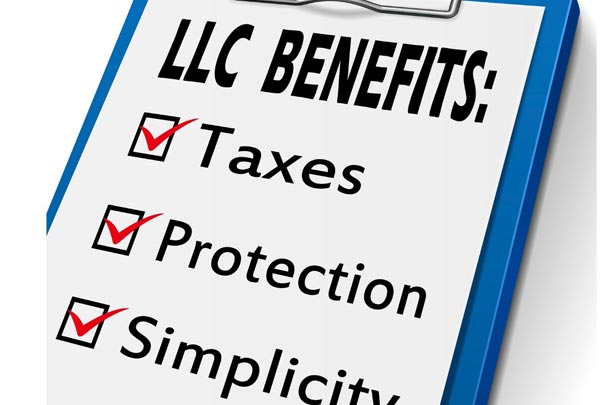Records, Books and Taxation
Records and books
Many Limited Liability Company statutes require that a Limited Liability Company maintains sufficient books and records of its business and management affairs. This requirement varies from state to state. The books and records by and large detail the members’ contributions to the Limited Liability Company, the company’s financial and tax data, and other financial and management information. Like a partnership’s books, books of a Limited Liability Company generally have to be kept at the company’s principal place of business, and each member must have access to and be allowed to inspect and copy the books upon reasonable demand.
TAXATION
In general, for federal income tax purposes, the Internal Revenue Service treats a Limited Liability Company as a partnership. The members of a Limited Liability Company are taxed only on their share of the profits of the company. Any gains, losses, credits, and deductions flow through the Limited Liability Company to the members, who in turn report them as income and losses on their personal tax return. The Limited Liability Company is not taxed as a separate entity unless it happens to fail to qualify as a partnership for tax purposes.
The Internal Revenue Service will examine a state’s Limited Liability Company statute and a Limited Liability Company’s operation in order to determine whether the Limited Liability Company qualifies as a partnership for tax purposes. Essentially, if the Internal Revenue Service finds that the Limited Liability Company resembles a corporation more than a partnership, then the Limited Liability Company may not qualify as a partnership for tax purposes. Under IRS regulations, Limited Liability Company must lack two of four recognized corporate characteristics before they will be treated as a partnership for tax purposes. These characteristics are limited liability, centralized management, free transferability of interests, and continuity of life. Because every Limited Liability Company protects its members’ liability, a Limited Liability Company nearly always possesses the characteristic of limited liability. Consequently, the IRS’s analysis will usually focus on the last three characteristics.

Limited Liability Company
-
LLC shareholder or member
-
Why do we need LLC’s?
-
The businesses that benefit from LLCs
-
The basics of Limited Liability Companies (LLCs)
-
Articles of Organization for Limited Liability Companies
-
The advantages of Limited Liability Companies (LLCs)
-
The differences between Limited Liability Companies/Limited Partnerships and Corporations
- LLC’s Part One – History
-
Formation, Structure and Operating Agreement
-
Membership Interests and Member Contributions
-
Liability
- LLC’s Part Five – Records, Books and Taxation
- LLC’s Part Six – Centralized Management and Transferability of Interests
- LLC’s Part Seven – Continuity of Life, Withdrawal of Members and Dissolution
- Delaware Series Limited Liability Company
- Kentucky closes loopholes in limited liability companies
- Frequently asked questions about Limited Liability Companies (LLCs) – Part One
- Frequently asked questions about Limited Liability Companies (LLCs) – Part Two
- Frequently asked questions about Limited Liability Companies (LLCs) – Part Three
- Advantages of a Limited Liability Company
- Advantages of a Limited Liability Company (LLC) over a Limited Partnership
- Advantages of a Limited Liability Company (LLC) over an S Corporation
- Facts about Limited Liability Companies (LLCs)
- More frequently asked questions about Limited Liability Companies – Part One
- More frequently asked questions about Limited Liability Companies – Part Two
- More frequently asked questions about Limited Liability Companies – Part Three
- More frequently asked questions about Limited Liability Companies – Part Four
- More frequently asked questions about Limited Liability Companies – Part Five
newsletter signup
[forminator_form id=”1485″]

FIGHTING BACK!
